Titanium alloy powders are fascinating and incredibly versatile materials used in various industries. This comprehensive guide will delve into the world of titanium alloy powders, exploring their types, compositions, properties, applications, and more. We’ll compare different metal powder models, discuss their advantages and disadvantages, and provide detailed information on suppliers and pricing. By the end of this guide, you’ll have a thorough understanding of titanium alloy powders and their significance in modern technology.
Overview of Titanium Alloy Powders
Titanium alloy powders are fine particles of titanium-based materials that have been processed for various industrial applications. These powders are known for their exceptional strength, low density, and excellent corrosion resistance. They are widely used in aerospace, medical, automotive, and other high-performance industries.
Titanium alloy powders come in different compositions, each designed to meet specific requirements. The most common titanium alloys include elements like aluminum, vanadium, molybdenum, and chromium. These additions enhance the properties of the base titanium, making the alloys suitable for a wide range of applications.
Key Characteristics of Titanium Alloy Powders
- High Strength-to-Weight Ratio: Titanium alloys are incredibly strong while being much lighter than steel.
- Corrosion Resistance: These alloys resist corrosion from a variety of substances, including seawater and chlorine.
- Biocompatibility: Titanium alloys are often used in medical implants due to their compatibility with the human body.
- Thermal Stability: They maintain their properties even at high temperatures, making them ideal for aerospace applications.
- Fatigue Resistance: Titanium alloys can withstand repeated stress, which is crucial for structural components.
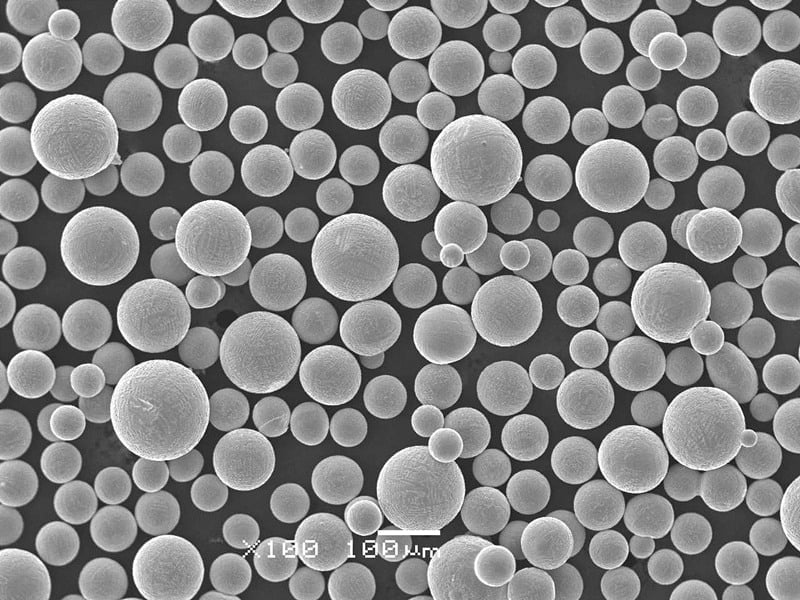
Types and Composition of Titanium Alloy Powders
Below is a table summarizing the key types of titanium alloy powders, their compositions, and notable properties.
| Type | องค์ประกอบ | คุณสมบัติ |
|---|---|---|
| Ti-6Al-4V | 6% Aluminum, 4% Vanadium | High strength, excellent corrosion resistance, biocompatible |
| Ti-6Al-7Nb | 6% Aluminum, 7% Niobium | High strength, improved fatigue resistance |
| Ti-3Al-2.5V | 3% Aluminum, 2.5% Vanadium | Good weldability, high toughness |
| Ti-15V-3Cr-3Al-3Sn | 15% Vanadium, 3% Chromium, 3% Aluminum, 3% Tin | High strength, good formability |
| Ti-5Al-2.5Sn | 5% Aluminum, 2.5% Tin | High temperature stability |
| Ti-8Al-1Mo-1V | 8% Aluminum, 1% Molybdenum, 1% Vanadium | High strength, excellent fracture toughness |
| Ti-0.2Pd | 0.2% Palladium | Improved corrosion resistance in acidic environments |
| Ti-6Al-2Sn-4Zr-6Mo | 6% Aluminum, 2% Tin, 4% Zirconium, 6% Molybdenum | High strength, excellent creep resistance |
| Ti-6242 | 6% Aluminum, 2% Tin, 4% Zirconium, 2% Molybdenum | High strength, good oxidation resistance |
| Ti-10V-2Fe-3Al | 10% Vanadium, 2% Iron, 3% Aluminum | High strength, excellent formability |
Applications of Titanium Alloy Powders
Titanium alloy powders are utilized in various industries due to their unique properties. Let’s explore some of the primary applications.
| อุตสาหกรรม | แอปพลิเคชัน |
|---|---|
| อวกาศ | Aircraft components, turbine blades, structural parts |
| แพทย์ | Dental implants, orthopedic implants, surgical instruments |
| ยานยนต์ | Engine components, exhaust systems, performance parts |
| อุตสาหกรรม | Chemical processing equipment, heat exchangers, valves |
| Sports | Golf club heads, bicycle frames, sporting equipment |
| การป้องกัน | Armor plating, military vehicles, missile components |
| พลังงาน | Offshore drilling rigs, power plant components, wind turbines |
| เครื่องใช้ไฟฟ้า | Mobile phone components, laptop casings, high-performance electronics |
Detailed Applications of Titanium Alloy Powders
- การบินและอวกาศ: Titanium alloy powders are critical in the aerospace industry. They are used to manufacture components like turbine blades, structural parts, and landing gear. The high strength-to-weight ratio and excellent fatigue resistance make titanium alloys ideal for aircraft and spacecraft applications.
- การแพทย์: In the medical field, titanium alloy powders are used to produce dental implants, orthopedic implants, and surgical instruments. Their biocompatibility ensures that they do not cause adverse reactions when implanted in the human body.
- อุตสาหกรรมยานยนต์: The automotive industry benefits from titanium alloy powders in the production of engine components, exhaust systems, and performance parts. These alloys reduce the weight of vehicles, leading to improved fuel efficiency and performance.
- อุตสาหกรรม: Titanium alloy powders are used in industrial applications such as chemical processing equipment, heat exchangers, and valves. Their corrosion resistance and high-temperature stability make them suitable for harsh environments.
- Sports: Sports equipment manufacturers use titanium alloy powders to produce lightweight and durable products like golf club heads, bicycle frames, and other sporting equipment.
- Defense: In the defense sector, titanium alloy powders are utilized for armor plating, military vehicles, and missile components. The high strength and resistance to impact are crucial for these applications.
- Energy: The energy sector employs titanium alloy powders in offshore drilling rigs, power plant components, and wind turbines. Their durability and resistance to corrosion are essential in these demanding environments.
- Electronics: Titanium alloy powders are used in the production of mobile phone components, laptop casings, and high-performance electronics. Their strength and lightweight properties are beneficial for portable electronic devices.
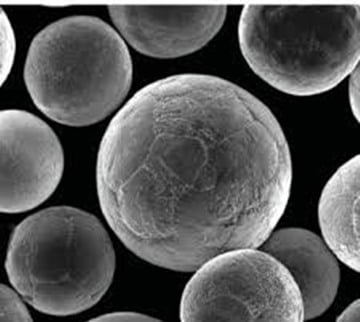
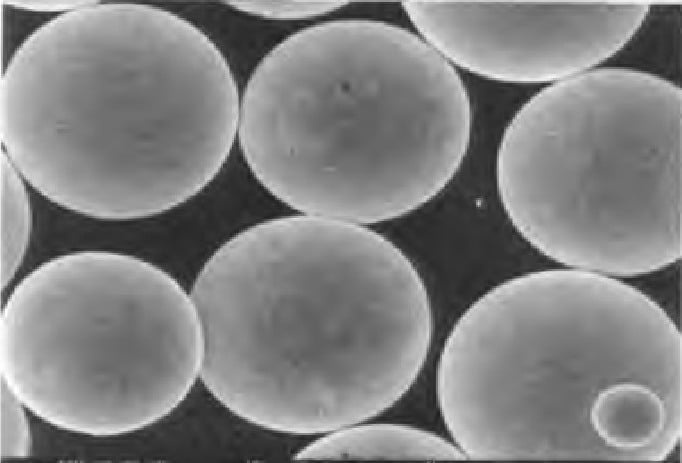
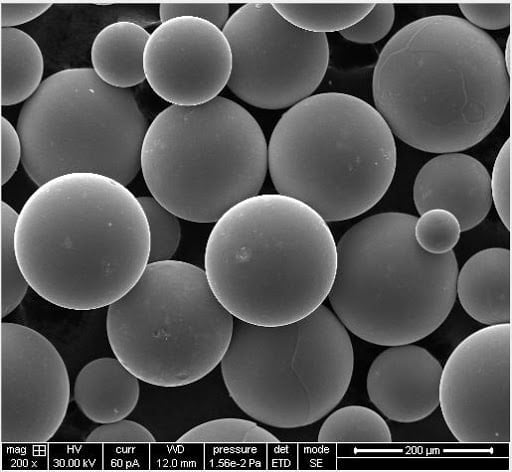
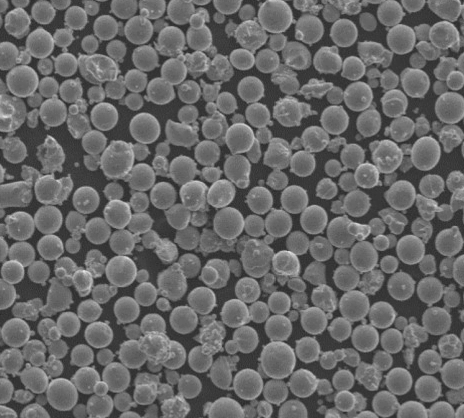
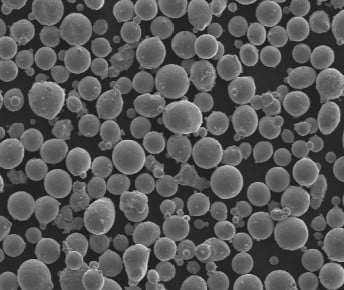

Specifications, Sizes, Grades, and Standards
When selecting titanium alloy powders, it’s essential to consider the specifications, sizes, grades, and standards. Here’s a detailed table showcasing these aspects.
| สเปก | Size Range (µm) | Grades | มาตรฐาน |
|---|---|---|---|
| ASTM B348 | 15-45, 45-75 | ชั้น ป.5 | ASTM, ISO, AMS |
| ASTM F67 | 15-45, 45-75 | Grade 1, 2 | ASTM, ISO, AMS |
| AMS 4998 | 20-53 | ชั้นปีที่ 23 | AMS, ASTM |
| ISO 5832-2 | 15-45, 45-75 | Grade 3 | ISO, ASTM, AMS |
| AMS 4911 | 20-63 | ชั้น ป.5 | AMS, ASTM, ISO |
| ASTM F136 | 15-45, 45-75 | ชั้นปีที่ 23 | ASTM, ISO, AMS |
| AMS 4902 | 15-45, 45-75 | Grade 9 | AMS, ASTM, ISO |
| ISO 5832-3 | 20-53 | ชั้น ป.5 | ISO, ASTM, AMS |
| ASTM F1108 | 20-63 | Grade 12 | ASTM, ISO, AMS |
| AMS 4967 | 15-45, 45-75 | ชั้นปีที่ 23 | AMS, ASTM, ISO |
Suppliers and Pricing Details
Selecting the right supplier for titanium alloy powders is crucial for ensuring quality and cost-effectiveness. Here’s a detailed table of suppliers and pricing details.
| ซัพพลายเออร์ | ที่ตั้ง | Product Range | Pricing (per kg) |
|---|---|---|---|
| ATI Metals | สหรัฐอเมริกา | Ti-6Al-4V, Ti-6Al-7Nb | $100 – $150 |
| Arcam AB | สวีเดน | Ti-6Al-4V, Ti-5Al-2.5Sn | $120 – $160 |
| AP&C | แคนาดา | Ti-6Al-4V, Ti-0.2Pd | $110 – $140 |
| GKN Hoeganaes | สหรัฐอเมริกา | Ti-6Al-4V, Ti-15V-3Cr-3Al-3Sn | $130 – $170 |
| TLS Technik GmbH | เยอรมนี | Ti-6Al-4V, Ti-8Al-1Mo-1V | $125 – $165 |
| Praxair | สหรัฐอเมริกา | Ti-6Al-4V, Ti-10V-2Fe-3Al | $115 – $155 |
| Sandvik Osprey | สหราชอาณาจักร | Ti-6Al-4V, Ti-3Al-2.5V | $105 – $145 |
| OSAKA Titanium | ญี่ปุ่น | Ti-6Al-4V,Ti-6Al-2Sn-4Zr-6Mo | $135 – $175 |
| Carpenter Technology | สหรัฐอเมริกา | Ti-6Al-4V, Ti-6Al-7Nb | $140 – $180 |
| Advanced Metal Technology | ประเทศจีน | Ti-6Al-4V, Ti-6242 | $110 – $150 |
Advantages of Titanium Alloy Powders
Titanium alloy powders offer numerous benefits across various applications. Let’s explore some of their key advantages.
High Strength-to-Weight Ratio
Titanium alloys are known for their exceptional strength-to-weight ratio. This means they provide high strength while remaining relatively lightweight. This property is particularly advantageous in aerospace and automotive applications where reducing weight without compromising strength is crucial.
ความต้านทานการกัดกร่อน
One of the standout features of titanium alloy powders is their resistance to corrosion. Unlike many other metals, titanium alloys do not corrode easily, even in harsh environments such as seawater or acidic conditions. This makes them ideal for applications in the chemical industry, marine environments, and medical implants.
ชีวสาระบรรจบ
Titanium alloys are biocompatible, meaning they can be safely used in medical applications without causing adverse reactions in the human body. This makes them the material of choice for dental implants, orthopedic implants, and other surgical instruments.
เสถียรภาพของอุณหภูมิ
Titanium alloys maintain their properties at high temperatures, making them suitable for high-performance applications like aerospace and automotive engines. They do not lose strength or become brittle when exposed to extreme heat, which is crucial for components subjected to high thermal stresses.
Fatigue Resistance
Fatigue resistance is another significant advantage of titanium alloy powders. They can withstand repeated stress and strain cycles without failing, which is essential for structural components in aerospace and automotive applications.
Disadvantages of Titanium Alloy Powders
While titanium alloy powders have many advantages, they also come with some drawbacks that need to be considered.
High Cost
Titanium alloy powders are generally more expensive than other metal powders. The high cost of raw materials and the complex processing methods contribute to this. This can be a limiting factor for some applications, especially where cost is a critical concern.
Difficult to Machine
Titanium alloys are notoriously difficult to machine. They have a tendency to gall and wear down cutting tools quickly, which can increase manufacturing costs and time. Special tools and techniques are often required to machine titanium alloys effectively.
Limited Availability
The availability of high-quality titanium alloy powders can be limited, especially for specific grades and compositions. This can lead to longer lead times and higher prices for certain applications.
ความหนาแน่น
While titanium alloys have a high strength-to-weight ratio, their density is higher than that of some other lightweight materials like aluminum. This means that in applications where minimizing weight is the absolute priority, other materials might be preferred.
Complex Processing
The processing of titanium alloy powders requires specialized equipment and expertise. This can add to the overall cost and complexity of producing components from these materials.
Comparing Titanium Alloy Powders: Advantages and Limitations
To better understand the pros and cons of different titanium alloy powders, let’s compare some of the most commonly used types.
| โลหะผสม | ข้อได้เปรียบ | ข้อจำกัด |
|---|---|---|
| Ti-6Al-4V | High strength, excellent corrosion resistance, widely available | Expensive, difficult to machine |
| Ti-6Al-7Nb | Improved fatigue resistance, biocompatible | High cost, limited availability |
| Ti-3Al-2.5V | Good weldability, high toughness | Lower strength compared to other titanium alloys |
| Ti-15V-3Cr-3Al-3Sn | High strength, good formability | Expensive, complex processing |
| Ti-5Al-2.5Sn | High temperature stability | Limited availability, difficult to machine |
| Ti-8Al-1Mo-1V | High strength, excellent fracture toughness | High cost, difficult to machine |
| Ti-0.2Pd | Improved corrosion resistance in acidic environments | Lower strength, limited applications |
| Ti-6Al-2Sn-4Zr-6Mo | High strength, excellent creep resistance | Very expensive, limited availability |
| Ti-6242 | High strength, good oxidation resistance | High cost, complex processing |
| Ti-10V-2Fe-3Al | High strength, excellent formability | Expensive, difficult to machine |
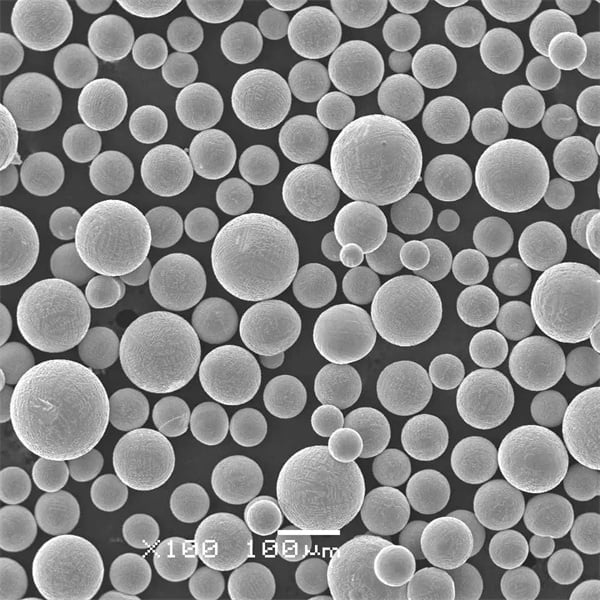
คำถามพบบ่อย
Here are some frequently asked questions about titanium alloy powders, along with their answers.
| Question | Answer |
|---|---|
| What are titanium alloy powders used for? | They are used in aerospace, medical, automotive, industrial, sports, defense, energy, and electronics industries. |
| What are the benefits of titanium alloy powders? | High strength-to-weight ratio, corrosion resistance, biocompatibility, thermal stability, and fatigue resistance. |
| What are the common types of titanium alloy powders? | Ti-6Al-4V, Ti-6Al-7Nb, Ti-3Al-2.5V, Ti-15V-3Cr-3Al-3Sn, Ti-5Al-2.5Sn, Ti-8Al-1Mo-1V, Ti-0.2Pd, Ti-6Al-2Sn-4Zr-6Mo, Ti-6242, Ti-10V-2Fe-3Al. |
| What are the disadvantages of titanium alloy powders? | High cost, difficult to machine, limited availability, density, and complex processing. |
| Who are the leading suppliers of titanium alloy powders? | ATI Metals, Arcam AB, AP&C, GKN Hoeganaes, TLS Technik GmbH, Praxair, Sandvik Osprey, OSAKA Titanium, Carpenter Technology, Advanced Metal Technology. |
| How are titanium alloy powders manufactured? | They are typically produced using methods such as gas atomization, plasma atomization, and mechanical alloying. |
| Why are titanium alloys preferred in aerospace applications? | Due to their high strength-to-weight ratio, corrosion resistance, and thermal stability. |
| Are titanium alloy powders biocompatible? | Yes, they are often used in medical implants due to their biocompatibility. |
| What factors affect the cost of titanium alloy powders? | Raw material costs, processing methods, availability, and demand. |
| Can titanium alloy powders be recycled? | Yes, titanium alloy powders can be recycled, but the process can be complex and costly. |
บทสรุป
Titanium alloy powders are indispensable materials in various high-performance industries due to their exceptional properties. They offer a unique combination of strength, corrosion resistance, biocompatibility, and thermal stability, making them ideal for applications in aerospace, medical, automotive, and beyond.
While they come with some disadvantages such as high cost and difficulty in machining, the benefits they provide often outweigh these challenges. By understanding the different types of titanium alloy powders, their compositions, applications, and limitations, you can make informed decisions when selecting the right material for your specific needs.
Whether you are looking to enhance the performance of an aircraft, develop cutting-edge medical implants, or create lightweight automotive components, titanium alloy powders offer a reliable and high-quality solution.
About 3DP mETAL
Product Category
ติดต่อเรา
มีคำถามอะไรไหม? ส่งข้อความมาเดี๋ยวนี้! หลังจากที่ได้รับข้อความแล้ว เราจะประมวลผลคำขอของคุณพร้อมทีมงานทั้งหมด
